Chinese Poet Cao Shui Won The Russian BRICS Creator Order
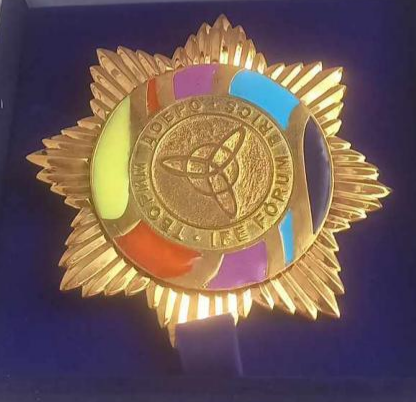
On the Russian Victory Day on May 9, Vadim Terekhin, Co-chairman of the Russian Writers and Poets' Federation, sent a congratulatory letter. Cao Shui, a famous Chinese poet, writer, playwright and public figure, was awarded the "BRICS Creator Order" (No. 57) by the Russian Finance and Economics Forum Committee of the BRICS Organization, in recognition of his "For his selfless service to poetry and his great personal contribution to world literature, as well as for strengthening friendship between peoples."
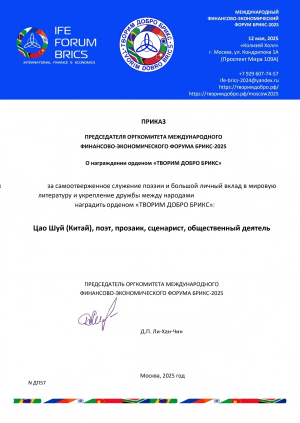
The BRICS Creator Order was issued by D Lee Khan Chin, Chairman of the Russian Financial Forum Committee, and will be officially presented on his behalf by Vadim Terekhin on May 27th. According to Russian media, the medal is awarded annually to politicians, artists, and poets who have made outstanding contributions to world civilization worldwide.
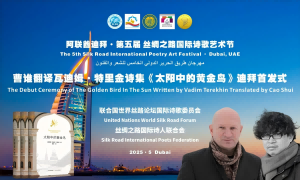
Cao Shui has been promoting a series of literary exchanges between China and Russia in recent years. His translated poetry collection "The Golden Bird in the Sun" by Vadim Terekhin was published by Beiyue Literature and Art Publishing House in May and will hold its debut ceremony in Dubai on the 27th. The Golden Bird in the Sun is a collection of short poems by the outstanding Russian poet Vadim Terekhin, featuring 200 selected poems by the author. Vadim Terekhin's poetry attempts to explore the eternal meaning behind everyday phenomena and elements. His poetry inherits the great Russian lyrical tradition founded by Alexander Pushkin, and can be seen as insightful aphorisms of the golden age of Russian literature, as well as intricate symbols of the silver age of Russian literature. In the era of globalization, his poetry has a strong tolerance for both Eastern and Western civilizations. He admires the civilization of ancient Rome in Italy and praises the glory of ancient Chinese civilization. He incorporates these civilizations into his poetry. He initially studied rocket science, which destined him to stand on the vast Eurasian continent and question the eternal starry sky. With his unique imagery extracted from the human world, he weaved a revelation of modern civilization.

Famous poets both domestically and internationally highly praise 'The Golden Bird in the Sun'. Jidi Majia, a famous Chinese poet, director of the Poetry Committee of the Chinese Writers Association, coordinator of the World Poetry Movement, and former vice president of the Chinese Writers Association, said, "It is undoubtedly a joyful thing that Vadim Terekhin's poetry has entered the Chinese world in a more complete way. His poetry avoids cumbersome rhetoric and always stays in the context of life, presenting pain, dreams, monologues, sighs, and confessions without any embellishment, forming a thought-provoking style in his poetry." Fernando Rendon, a famous Colombian poet, general coordinator of the World Poetry Movement, and president of the Madrid International Poetry Festival Vadim Terekhin shared his apocalyptic voice with the world, filled with sympathy and concern for the fate of humanity. His challenging tone, which we will find in Mayakovsky's poetry, conveys a strong personal voice. Without a doubt, it takes us back to the pandemic era, releasing a continuous poetic reflection and immersing us in the picture of the current state of the Earth threatened by death. The poet seeks a way to escape the illusions of existence and death through dialogue with God, humanity, and himself, "said Valery Ganichev, a famous Russian writer and former president of the Russian Writers Association Vadim Terekhin, a poet who lived in a land associated with the great Pushkin, was born with a great mission because it was the site of the sacred Optina Monastery and the birthplace of the victorious Marshal Zhukov. His works accurately reflect the most precious things on Earth. His poetry not only depicts his great homeland but also the era he lived in. His poetry inherits the fine traditions of Russian literature, with a unique style and full of philosophical ideas
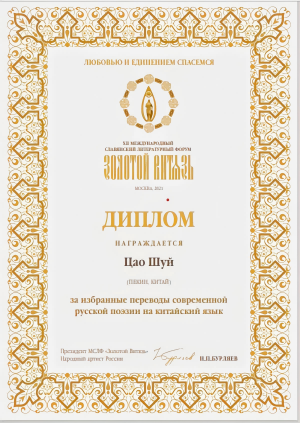
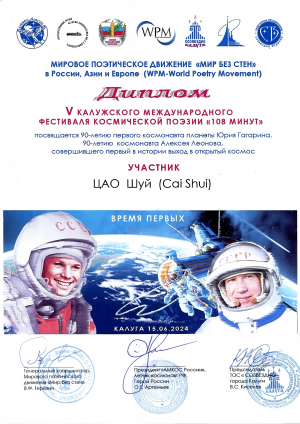
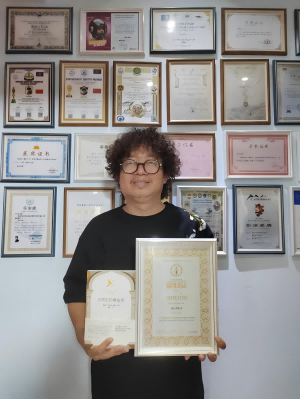
Many of Cao's poems have been translated into 30 languages and have won multiple international literary awards. Cao Shui's translation of 'Transparent Time' won the Golden Knight Award at the 12th International Slavic Literature Forum in Russia. The Golden Knight Award has been awarded since 2010, annually to all artistic categories representing creative activities in Russia and other cultural life - film, drama, music, art, literature, painting. It has a huge influence in Russia and is known as the "Pulitzer Prize of Russia". Russian literary critic Igor Zolotowski, writer Vladimir Krupin, and poet Dmitry Mizgulin won the main prize, while Cao Shui received the Golden Knight Award, was awarded the Translation Award in the literary category. “Transparent Time "is the Russian original name of" The Golden Bird in the Sun ". It is the representative work of Vadim Terekhin, an outstanding Russian poet and co-chairman of the Russian Writers and Poets' Federation. He is also one of the representative contemporary poets in Russia, and his works have a wide influence. This poetry collection was originally written in Russian and was translated from English to Chinese by Cao Shui. It is now published by Beiyue Literature and Art Publishing House.
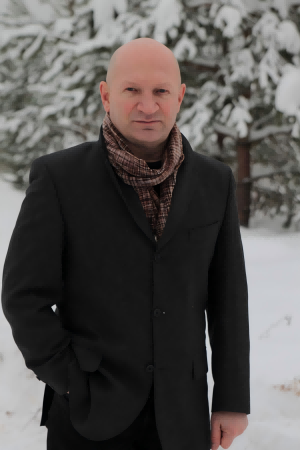
Vadim Terekhin-poet, co-Chairman of the Russian writers ' Union, Vice-President of the international Academy of Russian literature (Moscow). Chairman of the Kaluga regional branch of the all-Russian public organization "Union of writers of Russia". member of the coordinating Council of the international poetic movement "World without walls" (VSP), corresponding member of the Petrovskaya Academy of Sciences and arts (Saint Petersburg), full member of the Academy of Russian literature (Moscow), full state adviser of the second class of the Kaluga region. 27.01 was born in 1963 in the village Pesochensky of the Tula region. He graduated from the Kazan higher military command and engineering school of the rocket forces named after Marshal of artillery M. N. Chistyakov and the Moscow literary Institute named after M. Gorky. Served at the Baikonur cosmodrome, works in the field of literature, culture, art and cinematography. Winner of literary awards: all-Ukrainian literary award named after Taras Shevchenko (2018), the international Slavic literary forum "Golden knight" (2016, Golden knight in the category "poetry"), the all-Russian award named after the poet-frontman V, T. Stantsev (2016), the international award "Imperial culture" named after Eduard Volodin (2012), the Literary Award "Belukha" named after G. D. Grebenshchikov (2012), prize of the Central Federal district of the Russian Federation in the field of literature and art (2009), winner of the honorary prize of the poetry Forum in Bahrain (2007), national literary prize "the Paternal house" the name of the brothers Kireevsky (2002), winner of the second contest Filaret's religious poetry on the Internet (2001), the literary prize of the publishing house "the Golden path" (2000), literary award named after Marina Tsvetayeva (1998), national award of Fund of support of democracy for young writers (1996).
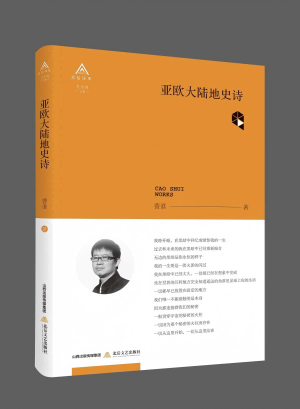
Cao Shui's "Epic of Eurasia" was published by Beiyue Literature and Art Publishing House in 2018 and won awards such as the 7th China Long Poetry Award. It is Cao Shui's representative work. Currently, it has been translated into English, Italian, Spanish, and the Russian and Arabic versions are also on the agenda. There is no epic tradition in Chinese literature, and in today's globalized world, humanity does not have a common epic. In the past, the evolution of human civilization centered around the Eurasian continent, from Babylon in the Mesopotamian region, eastward to Judah, Egypt, Greece, eastward to Persia, India, and China. The author attempts to create a human epic by integrating the history of the seven major civilizations. Epics should have grand stories and clever rhythms. In the modern era of free verse, the author hopes to enter the story structure through meditation, use lyricism to ensure the meaning of poetry, and build a modern epic of humanity with their own ambition. The preface of the poetry collection "Departing to a Distant Land Without Distances" was written by the famous critic Huo Junming. This poetry collection will also take readers to a different "distant place", a distant "human homeland" that integrates history and geography.
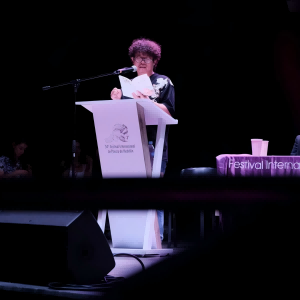
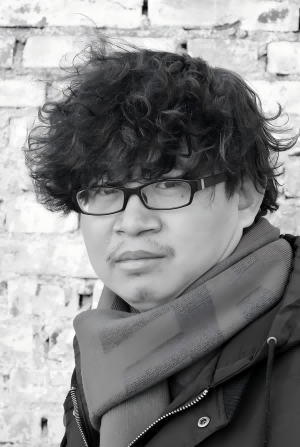
Cao Shui(Chinese: 曹谁;pinyin: Cáo Shuí), also Shawn Cao (born in Jun 5, 1982), is a Chinese poet, novelist, screenwriter and translator. He is a representative figure of Chinese Contemporary Literature. He leads the Great Poetry Movement, Poetry Film Movement and Dramatizing Fiction Movement. In his “Manifesto of Great Poetry”, he aims to integrate sacred and secular cultures, oriental and occidental cultures, ancient and modern cultures in Chinese literature. In 2008, he resigned from a newspaper and traveled around Tibet and Xinjiang, which is the center of Eurasia or the World in his view. His novels Secret of Heaven trilogy tells the whole developing history of human civilization. His most notable works includes Epic of Eurasia, the already mentioned trilogy and King Peacock (TV series). In his works, he extracts elements of various ancient human civilizations, from Babylon to the west to Judea, Egypt, Greece, to the east to Persia, India, China, and uses these elements to reconstruct a new Utopian human homeland, which always described as Eurasia, the Top of the Tower of Babel or Kunlun Mountains (Heaven Mountains). So far fourty books of Cao Shui have been published, including ten poem collections, four essay collections, ten novels, twenty fairy tales, four translations and one hundred episodes TV series and films. He has won more than 50 literary awards worldwide, including the 1st Chinese Young Poet Award, the 4th Cao Yu Cup Drama Award, the Apollo Dionysus Award of the 8th Italian Rome International Academy of Contemporary Poetry and Art Award, the 12th Russian Golden Knight Award, and the Top Ten Public Figures of the 5th Chinese Poetry Spring Festival Gala, etc. His works have been translated into 30 languages, including English, Italian, Spanish, French, German, Swedish, Portuguese, Danish, Polish, Russian, Hungarian, Croatian, Slovenian, Turkish, Arabic, Japanese, Korean, Hindi, Nepali, Vietnamese, Greek, Bengali, Kazakh, Irish, Serbian, Kyrgyz, Albanian, etc. He has been invited to participate in the 30th Medellin International Poetry Festival, the 26th Havana International Poetry Festival, the 14th Kritya International Poetry Festival in India and the 4th Qinghai Lake International Poetry Festival. He is a member of China Writers Association, China Film Association and China Poetry Society. He is also chief editor of Great Poetry, deputy editor in chief of World Poetry, member of China Writers’ Association, Asian Coordinator of World Poetry Movement, Chinese Representative of BRICS Writers Association, secretary general of Boao International Poetry Festival, executive president of the Silk Road International Poetry Festival and Chairman of Beijing International Poetry Film Festival. Currently he lives in Beijing, and works as a professional writer, translator and screenwriter.
Vadim Terekhin highly praised Cao Shui's poetry: Cao Shui is my friend, poet, and public figure! He is not only famous in China, but also far away abroad! Cao Shui has been tirelessly devoted to literature and has poured all his energy into its development and prosperity! His works can be viewed from the perspective of world literature, as he attempts to find commonalities in the cultures of different countries. Cao Shuibelongs to the group of "borderless" poets who created the world poetry movement, promoting the truth that poetry will save the world. So his poetry collection "Epic of the Eurasian Continent" has been translated into multiple languages, and I think readers all over the world will be interested. A thoughtful person will find beauty and elegance in Cao Shui's poetry, as well as answers to many exciting questions! Wishing Cao Shui is full of creativity and inspiration to bring readers interesting and rich reading.
Click to enter the Chinese version